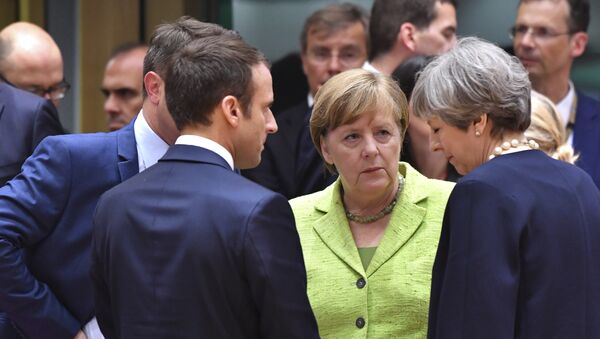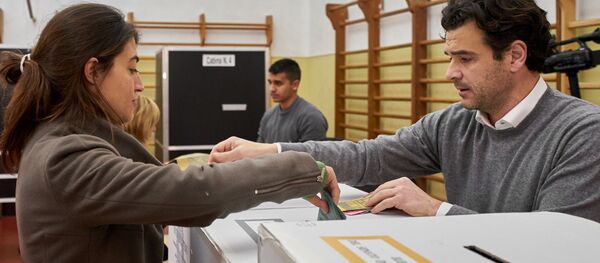US Department of State Deputy Director of Policy Planning David Tessler has urged the EU to maintain its sanctions against Russia, according to the Financial Times.
"We feel very strongly that sanctions need to remain in place until we see the behavioral change we are looking for from the Russian government," Tessler was quoted by the newspaper as saying.
READ MORE: EU's Anti-Russian Sanctions Shouldn't Be Extended 'Automatically' — Italy's PM
Referring to Rome's stance that the EU's sanctions against Russia damage Italy economically, Tessler made it plain "there's an inherent cost to sanctions for everybody" and that "there can't be cost-free sanctions."
His remarks came after Matteo Salvini, the Italian Interior Minister and Deputy Prime Minister, described Brussels' anti-Russian sanctions as "social, cultural and economic madness."
"We hear that Europe wants to accelerate things with an automatic renewal, without asking the opinions of member states. If they ask us to swallow such a thing, we will simply say no," Salvini told the annual meeting of the Russian branch of Italy's main business lobby Confindustria during his visit to Moscow in mid-October.
READ MORE: Money Talks: Why EU is Increasingly Buying Russia's Gas Despite Sanctions
He added that the sanctions regime "makes no sense and produces no positive effect," suggesting that it may end within the next twelve months.
On September 13, the European Union extended its sanctions against Russian individuals and entities "over actions undermining or threatening the territorial integrity" of Ukraine for another six months.
In late January, former American Vice President Joe Biden admitted that the US had to strong-arm its European partners into imposing economic sanctions on Moscow following the Crimean referendum in 2014.
READ MORE: The Cost of Compliance: EU 'Risks Crisis' Supporting US Sanctions Against Russia
"They wanted no part of the sanctions on Russia. We had impact on them. It was basically 'you gotta do it.' And thank God, [Angela] Merkel was strong enough at the time to […] reluctantly (she didn’t like it either) stand with us," Biden said, also citing former French President Francois Hollande and ex-Italian Prime Minister Matteo Renzi.
Russia has repeatedly denied any interference in the eastern Ukraine crisis, saying it was not a party to the conflict. As a retaliatory move, Moscow imposed a food embargo on the countries participating in the sanctions.





